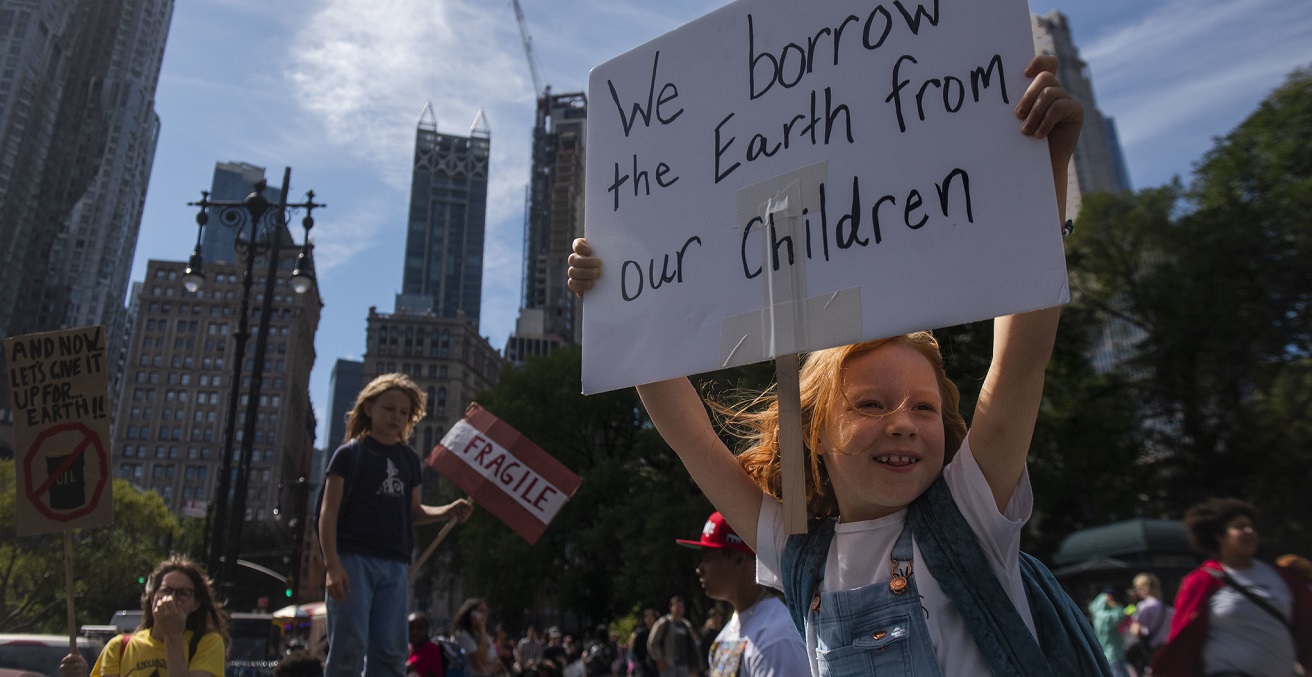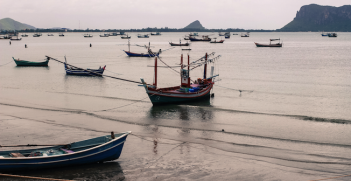It is time for Gender-Responsive Climate Action

The Gender Action Plan agreement at the 25th United Nations Climate Change Conference should have sent the message that the time for gender-responsive climate action is now. That message must get through here in Australia in the lead-up to COP26.
The global theme for International Women’s Day (IWD) in 2021 was “Women in Leadership: Achieving an Equal Future in a COVID-19 World.” A key part of a more equal post-COVID-19 world is increasing women’s access to leadership roles. As we move through one of the most tumultuous months for gender and politics in Australia in many years, it is time to consider the imperative of placing women at the helm of action related to climate change policy development and implementation. In particular, it is time to consider how a climate transition could become a transformative gender moment in understanding the links between gender, climate impacts, and human security.
The Global Picture
On IWD (8 March), I was fortunate to listen to Minister Anne-Marie Trevelyan, UK International Champion on Adaptation and Resilience for the COP26 Presidency and Minister of State, give a Chatham House talk on “Climate Action and Gender Equality: Can we close the gap on one without the other?” She summarised the reasons a gender perspective in climate leadership is so crucial:
- Women and children are significantly more likely than men to die during climate-related disasters, and they comprise up to 80 percent of those displaced by natural disasters.
- Women constitute more of the world’s poor and are often directly dependent on threatened environmental resources as their primary source of food and income.
- Women often don’t have the same access to other resources – such as education, information, land and credit – that would help them to respond to a changing climate.
- Climate change also worsens existing inequalities, increasing gender-based violence and the exploitation of women and girls, particularly for the most marginalised.
Two of the facts she cited really shocked me. The first recited:
“… 140 million years of productivity are lost annually because of the hours that women and girls spend using slower, more polluting cooking methods. Just try and get your heads around that statistic.”
140 million years. Because more than three billion people worldwide rely on polluting energy sources such as wood, dung, and charcoal for cooking. Almost one billion rely on kerosene lamps and other polluting devices to light their homes. The health implications are terrible, and women’s safety is jeopardised in finding fuel and water. My first job as a refugee lawyer in 1996 was as a Camp Sadako UNHCR volunteer in Dadaab camp on the Kenya-Somali border, where a German NGO called GTZ was trying to solve the complex chain of gendered violence, environmental destruction, and time use by introducing solar cookers. These kind of complex policy solutions need to accelerate at scale to deal with oncoming climate impacts in 2021.
The second fact was as follows, linking the global increase in forced marriage to increased disasters:
“Around 12 million more young girls are thought to have been married off as the frequency of natural disasters has increased.”
Just as the COVID-19 lockdowns exacerbated intimate partner and family violence, we will need to learn quickly how climate disasters affect men and women, boys and girls.
There are so many domains of work to be done in this feminist leadership space – creating gendered disaster responses, understanding the social policy impacts of climate change on the most vulnerable in particular places, integrating gender and social inclusion into climate change planning, and budgeting processes.
Gender, Climate and Human Security
The security risk posed by climate change is bleaker and more fundamental than most traditional security analysts or risk assessment frameworks seem to accept. Expert and UN opinions are converging to the idea of climate risks acting as a “threat multiplier.” As the UN Security Council debated in January 2019, climate change has a multitude of security impacts – rolling back the gains in nutrition and access to food, heightening the risk of wildfires and exacerbating air quality challenges, and increasing the potential for water conflict. These in turn lead to more internal displacement and migration. Climate change is already forcing millions of people from their homes, and future storms, droughts, rising seas, and other impacts of climate change will further exacerbate people’s vulnerabilities.
Due to socially constructed gender roles and responsibilities, climate-related disasters have different impacts on men, women, girls, and boys. The most recent research found climate impacts will exacerbate violence against women. Just as pandemic restrictions exacerbated gender-based violence, new UN research find that poor harvests, livestock loss, lower earnings and food insecurity put pressure on men’s traditional role as providers, which can lead to intimate partner and family violence. Women may also be forced into insecure settings due to food scarcity or extreme weather events. As the recent UN Report on Gender, Climate and Security put it: “There is… an urgent need for better analysis and concrete, immediate actions to address the linkages between climate change and conflict from a gender perspective.”
In addition, the academic consensus, as represented in a recent Nature article, shows broad agreement that climate variability and change shape the risk of organised armed conflict within countries. In conflicts to date, however, the role of climate is judged to be small compared to other drivers of conflict, and the mechanisms by which climate affects conflict are uncertain. The experts predict that as risks grow under future climate change, many more potential climate–conflict linkages become relevant and extend beyond historical experiences. They predict the current risk will increase five-fold.
Given this context, those women currently advocating for climate justice and gender equality in their communities deserve more voice and support. Indigenous activists in particular are on the frontline of climate activism. The international community should urgently support and fund protection mechanisms for Women Human Rights Defenders (WHRDs) and environmental defenders which are based on a sound protection strategy, use organisational privilege to take on and redistribute risk, and include an emergency protection fund. This should acknowledge and support the wellbeing needs of WHRDs, environmental defenders, and Indigenous advocates. Donors should allow funding applications to include budget lines for the wellbeing of organisations operating in hostile environments.
This year we should also demand thought leadership around more sophisticated and intersectional threat assessments, risk analysis, and gender analysis that is fit for purpose to deal with the intersection of gender, climate, and conflict. There is increasing evidence that violence against women and human rights abuses generally are important indicators of conflict, including in countries that otherwise appear stable, and that this information might contribute to identifying where to focus national and international efforts on conflict prevention. States can continue to increase investments in gender and age disaggregated data, enhancing our ability to understand the unique ways that men, women, boys and girls experience insecurity, and measure progress against the Sustainable Development Goal indicators, but this data collection must include climate impacts. The road to COP26 must be a road that allow women and girls to lead.
Professor Susan Harris Rimmer is the Director of the Griffith University Policy Innovation Hub (appointed July 2020). She was previously the Deputy Head of School (Research) in the Griffith Law School and prior to joining Griffith was the Director of Studies at the ANU Asia-Pacific College of Diplomacy. With Professor Sara Davies, Susan is co-convenor of the Griffith Gender Equality Research Network. Sue leads the Climate Justice theme of the new Griffith Climate Action Beacon. She is a Research Associate at the Development Policy Centre in the Crawford School at the Australian National University. She is a non-resident Research Associate at Chatham House in the UK. Susan tweets at @femint.
The Griffith University Climate Action Beacon in collaboration with the UK High Commission in Australia held a “Queensland Women in Climate Leadership” symposium in April 2021 (tbc) in Brisbane, in acknowledgement of International Women’s Day 2021. The symposium will bring together First Nations and Pasifika women who are leaders in the realm of climate change action in Queensland to explore and highlight the centrality of women’s voice, experience and leadership in advancing climate action within community, and their significance for driving national, regional and global climate policy and diplomacy.
This article is published under a Creative Commons License and may be republished with attribution.





